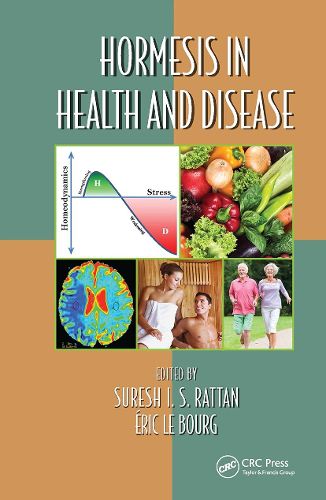Readings Newsletter
Become a Readings Member to make your shopping experience even easier.
Sign in or sign up for free!
You’re not far away from qualifying for FREE standard shipping within Australia
You’ve qualified for FREE standard shipping within Australia
The cart is loading…






Some mild stresses have positive effects on survival and aging as shown in animal models. There is also a large body of research that demonstrates these hormetic effects on aging, health, and resistance to severe stresses and diseases in human beings. However, the data are dispersed in the literature and are not always interpreted as hormetic effects. Hormesis in Health and Disease reviews the evidence for hormesis in humans as achieved through a variety of stresses or stimuli, and discusses mechanisms of hormesis and its ethical and legal issues.
Divided into four sections, this book presents the current state of research, including questions, debates, doubts, and controversies in hormesis. Section I covers the history and terminology of hormesis, describing its main features and providing necessary background information. Section II shows that hormetic effects can be caused by various stresses-including physical exercise, nutritional components, fasting, micronutrients, irradiation, heat, ischemia, and mental challenge-and can be observed both in organs and at the organism level. Section III reviews possible mechanisms of hormesis that have been elucidated at this point. Section IV discusses the wider consequences hormesis may have for everyone.
This book demonstrates that health beneficial hormetic effects do exist in human beings. It offers information to inspire key players to initiate new strategies to elucidate the strengths and limits of the dual nature of stress.
$9.00 standard shipping within Australia
FREE standard shipping within Australia for orders over $100.00
Express & International shipping calculated at checkout
Some mild stresses have positive effects on survival and aging as shown in animal models. There is also a large body of research that demonstrates these hormetic effects on aging, health, and resistance to severe stresses and diseases in human beings. However, the data are dispersed in the literature and are not always interpreted as hormetic effects. Hormesis in Health and Disease reviews the evidence for hormesis in humans as achieved through a variety of stresses or stimuli, and discusses mechanisms of hormesis and its ethical and legal issues.
Divided into four sections, this book presents the current state of research, including questions, debates, doubts, and controversies in hormesis. Section I covers the history and terminology of hormesis, describing its main features and providing necessary background information. Section II shows that hormetic effects can be caused by various stresses-including physical exercise, nutritional components, fasting, micronutrients, irradiation, heat, ischemia, and mental challenge-and can be observed both in organs and at the organism level. Section III reviews possible mechanisms of hormesis that have been elucidated at this point. Section IV discusses the wider consequences hormesis may have for everyone.
This book demonstrates that health beneficial hormetic effects do exist in human beings. It offers information to inspire key players to initiate new strategies to elucidate the strengths and limits of the dual nature of stress.